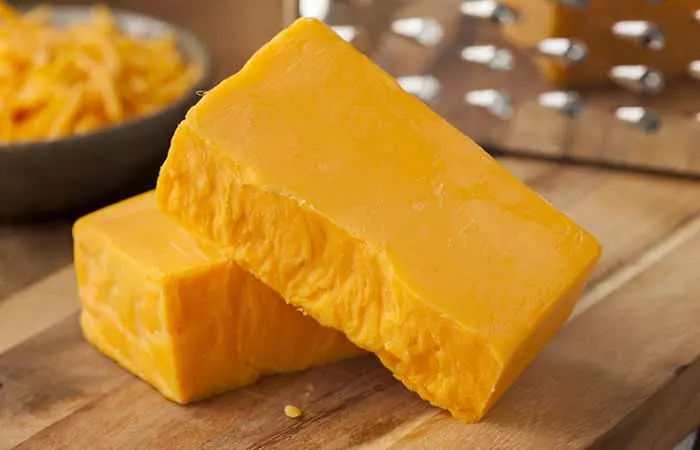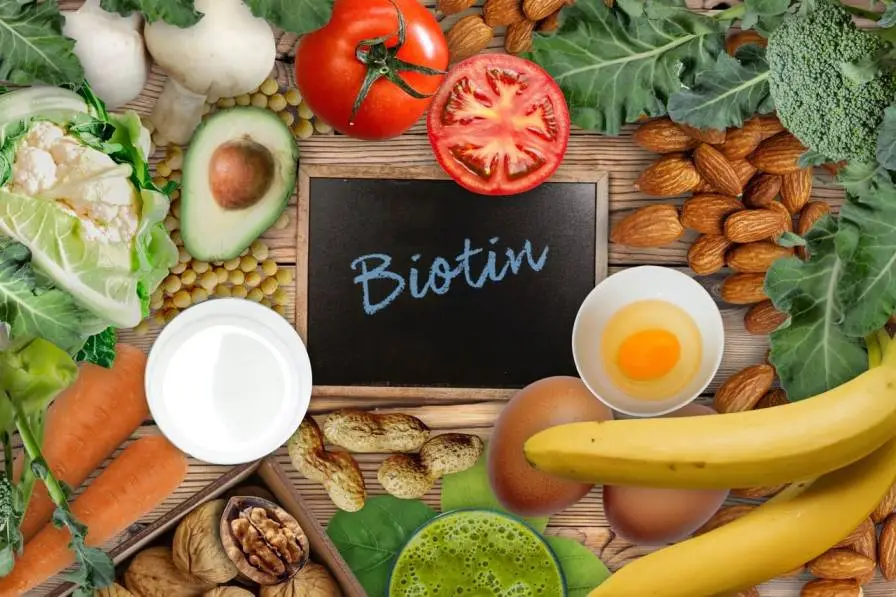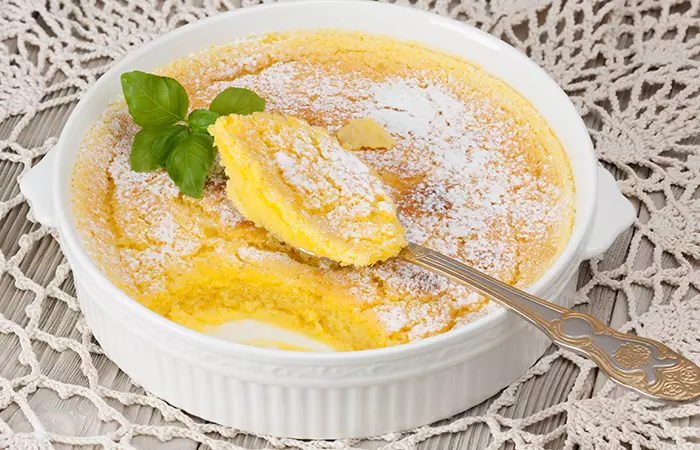Biotin, the other name is vitamin B7, is amongst the most significant vitamin, which has its part in every metabolic procedure. Well, does this include the above foods sources of Biotin or, are you a consumer if biotin richest foods? If not then you had better get little bit adjusted as to your diet before the worst comes to worse.
What Is Biotin?
Plainly speaking, biotin is the component of the B vitamins. It is also referred to as vitamin B7 or vitamin H and is one of the B complex vitamins responsible for converting food for energy.
The name biotin is derived from the ancient Greek word ‘biotos’ that means ‘sustenance’ or ‘life’.
What are potency gains derived from the modern Biotin (Vitamin B7)?
-
Biotin affect the normal functioning of the brain, eye, skin, hair, nails, liver, and neurological system. It therefore becomes very crucial in helping to encourage embryonic developments.
-
New research has shown that this extra biotin makes the blood sugar levels stable and also benefits the health of the hair, skin and nails as well as the health of the babies of pregnant women.
-
Derivatives of biotin can possess the ability to enhance the skin health. Biotin is involved in the synthesis of keratin which gives elasticity to your skin . With sufficient levels of biotin, your skin will remain pleasant, not dry, nor excessively oily. This is a balance which is important to maintaining fine skin. On the same token, more attention is required in this regard although existing research has provided considerable insight.
-
Biotin has attracted attention for its possible involvement in hair health as well. Research indicates Biotin is excellent for hair growth. You may eat it in many ways. You can take Biotin through your food or apply it as a topical product. For patients with hereditary carboxylase enzyme deficits, doctors often prescribe greater dosages of biotin (range from 10,000 to 30,000 μg/day). However, persons with disorders like brittle nail syndrome or uncombable hair syndrome may require lower doses of biotin (300 to 3,000 μg/day) to notice a reduction in hair loss.
- Additionally, biotin promotes your metabolism and regulates blood sugar levels. It also protects the heart since it improves healthy cholesterol (HDL) levels.
-
Biotin is also vital for muscle function and repair.
-
Biotin is crucial. Below, we have identified foods rich in this vitamin.
What Are The Foods Rich In Biotin (Vitamin B7)?

1. Liver
-
Three ounces of cooked (beef) liver contain 30.8 micrograms of biotin.
-
Beef liver also includes a considerable amount of high-quality protein. Other vital minerals include B vitamins and folate. Protein boosts muscle mass and is crucial for cell function too. B vitamins preserve your energy levels while folate enhances heart health.
How To Include In Your Diet
- Simply add 2 to 3 cubes of cow liver into taco meat.
2. Eggs
-
One entire cooked egg provides 10 micrograms of biotin.
-
We can’t stress enough about the value of eggs. They are entire foods. They are a full protein with a wide amino acid composition. The protein stimulates muscle development and helps in energy generation.
-
Eggs are also rich in zinc, iodine, selenium, and vitamins A and D — substances necessary for good thyroidi function and the overall endocrine system.
How To Include In Your Diet
- Fix as you choose, but try to get “organic” chicken eggs, which are devoid of pesticides, herbicides, and other possibly dangerous substances. Have them anytime you need an excellent amount of protein, fat, and vital nutrients. For a protein and nutritional boost, you may add egg yolks – where all of the contents of the egg is concentrated – to an organic salad.
3. Salmon
-
Three ounces of salmon contain 5 micrograms of biotin.
-
Alaskan or wild-caught salmon is finest and lowest in pollutants. Avoid farm-raised salmon, which is frequently rich in mercury and PCBs. Apart from biotin (or vitamin B7), salmon is rich in omega-3 fatty acids. And these omega-3 fatty acids (EPA and DHA) do wonders for overall wellness. They minimize inflammation produced by common pollutants, protect the heart, promote cognitive health, and keep your hair and skin healthy.
How To Include In Your Diet
- Add chopped salmon to your morning omelet, lunch salad, or enjoy it with a sweet potato and other veggies around dinner time.
4. Pork Chop
- Pork chops deliver a large increase of complete protein. In addition to developing muscle, protein also promotes the construction and maintenance of tissues. Another component pork chops are particularly high in is zinc - a mineral that improves the immune system.
How To Include In Your Diet
- You may add sliced pork chops to your salad.
5. Sweet Potato
-
14 halves cup of cooked sweet potato offers 2.4 micrograms of biotin.
-
And aside from biotin sweet potatoes contain large amount of beta-carotene – an antioxidant that gives skin a boost. Antioxidants such as carotene and other carotenoids found in sweet potatoes are also known to enhance good vision and conquer illnesses such as macular degeneration disease. Beta carotene and biotin help the skin to be healthy and wrinkle free. Some of the skin benefits of Biotin include; improved skin texture as well as the skin barrier.
How To Include In Your Diet
- The sweet potatoes could be crushed and you put salt on it so as to balance your snack or as a part of dish accompanied with the meal.
6. Almonds

-
Enriching 1/4 cup of roasted almonds gives 1.5 micrograms of biotin according to nutrition fact.
-
Mg and vitamin E was also significantly higher in almonds and almonds are very rich in Mg and vitamin E. They also contain fiber that has satiety abilities to make the user reduce their weight in a dignified manner. Other nuts including walnuts, cashew, and peanuts also contain biotin in good proportions.
How To Include In Your Diet
- An apple with a small handful of almonds or a small amount of almond butter is great, at ANY TIME! Or replaced it with almond or peanut butter to your smoothie up your protein and healthy fat content.
Read Also: Plant Based Protein: Benefits and Sources
7. Tuna
-
According to the USDA national nutrient database the quantity of biotin in 86 grams of canned tuna is 0.6mcg.
-
Like salmon fish, tuna also contains selenium and omega- fatty acids which are effective in reducing high cholesterol and cuisyn triglycerides and has a strong cardiologists effect. Choose less concentrated kinds of tunas, including skipjack, as they contain the least proportion of mercury and other unhealthy compounds.
How To Include In Your Diet
- All you can do is add tuna to your salad or make a tuna sandwich with little organic mayonnaise or extra virgin olive oil and pickles.
8. Spinach
-
Half a cup of boiling spinach has 0.5 micrograms of biotin.
-
Spinach is rich in vitamins, minerals, fiber, and chlorophyll. And it is particularly rich in iron (remember Popeye?). The antioxidants in spinach assist to keep you healthy, reduce the aging process, and fight against illness. As with any leafy green veggies just make sure its organically cultivated (i.e., free of chemicals) for the highest health advantages.
-
And the iron in spinach, taken together with 250-1,000 mg of vitamin C, helps to prevent anemia by boosting iron absorption.
How To Include In Your Diet
- You may add spinach to any salad or your egg omelet for breakfast or dinner.
9. Broccoli
-
Fresh broccoli contains biotin with a proportion; 100 gm of fresh broccoli has 0.4 micro gm of biotin.
-
Often broccoli is called a superfood just because it contains as many nutrients as possible. It contains adequate amounts of vitamin K that is important in the formation of bones and the skin. And the vitamin C and antioxidants this little tree carries can fight several types of cancer.
How To Include In Your Diet
- When preparing broccoli you may chew it in its raw form, blend it, boil or integrate it in your salad with carrots and tomatoes.
10. Cheddar Cheese

-
Biotin in mild Cheddar cheese is 0.4 micrograms per one ounce of the cheese.
-
Cheddar cheese is especially rich in proteins, and it is an ideal one, because one slice contains 7 grams of 20 essential amino acids. The cheese is rich in calcium and phosphorus - while calcium is helpful for proper muscle and bone structure, phosphorus is important for proper kidney function and creation of DNA.
How To Include In Your Diet
- You may eat the cheese on your toast during breakfast or take it with any form of salad.
Symptoms: Biotin Deficiency: Causes, Signs, Diagnosis & Treatment Who Is At Risk?
Following are various circumstances that might contribute to biotin deficiency:
Certain Medications
- A few drugs might decrease the transport of vitamins in the way that they are transported by your body. Tracking Vitamins: The way certain nutrients travel through your body could be affected by some of the medication you might be taking. Certain medication could affect how vitamins are transported the way they are in your body. Some of the Drugs are antibiotics and anti- seizure drugs. This is because they could be able to eliminate the beneficial bacteria in your intestines that convert biotin.
Intestinal Problems
- Some long term gastrointestinal diseases such as Chron’s disease and colitis might affect the ability of the body to assimilate nutrients.
Long-Term Dieting
- Dieting for long period might limit you from getting all required vitamins and minerals and also lead to biotin dearth.
Biotinidase Deficiency
- Though very rare, this is inherited disorder that prevents your body from recycling biotin. Your body would circulate vitamin B7 a few times before your body excretes it through waste products. This may not happen if you have biotinidase deficiency.




